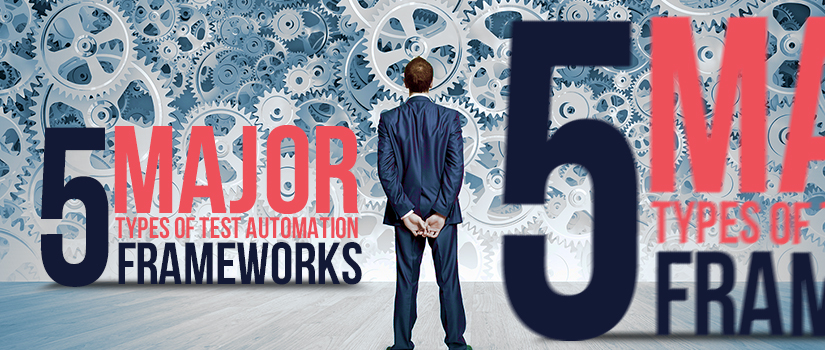Test automation frameworks uses a software to execute tests and then determine whether the resulted outcomes and the predicted outcomes are the same or not. Every organization needs software testing adequately, as quickly and thoroughly as possible. To accomplish this, organizations are turning to use automated testing methods.
As test automation frameworks are application independent, it has the ability to expand with the needs of each application. It promotes automation technologies to improve test coverage and gain better quality products. These frameworks help testers to save thousands of manual test execution hours and reduce costs significantly.
Let’s briefly look into the 5 main test automation categories and its functions:

#1) Linear Automation Framework:
This is the most simple framework of all types. Here, individual scripts are used for each test case and they are executed individually. This process enables the conversion of small or medium sized manual scripts to corresponding automation scripts.
Key Features:
- Very little planning is required to work with this framework
- Testing doesn’t take much time
- A tester does not need detailed knowledge of the framework as it uses record and playback to create linear scripts
- Created scripts are independent of each other
#2) Module-based Testing Framework:
This framework is based on object oriented programming method and uses the concept of abstraction. While testing, the application is divided into different modules, where each module consists of individual test scripts. The separation of modules is done using an abstraction layer, so that if any changes occur, it wouldn’t affect the other modules.
Key Features:
- This framework includes a high level of modularization, which reduces cost and makes maintenance much easier
- It’s pretty much scalable
- If defects are detected, only that part of the test script needs to be changed. The rest remains untouched
- Create new driver scripts for performing tests easily
#3) Data-Driven Testing Framework:
In this type of testing, the necessary inputs and expected output results are stored in separate data files. Here, a single driver test can execute all the necessary test cases with different sets of data. A driver script consists of functions like reading the data files, navigating through the entire program etc.
Key Features:
- It reduces the number of overall test scripts to implement all the available test cases
- Test data used can be created before test implementation gets ready or even before the testing system or environment is set up
- When it comes to maintenance and fixing of bugs, this framework ensures greater flexibility
- To generate test cases, less amount of codes are used
#4) Keyword-Driven Testing Framework:
This is an application independent framework that utilizes data tables and self-descriptive keywords, which explain the functions to be performed on the testing application.
The external input data file showcases the functions through ‘directives’, which are seen within the test scripts. These directives are called keywords. Therefore, this keyword based testing is considered to be an extension of the data-driven framework.
Key Features:
- Keywords can be re-used in multiple test cases
- An automation expertise is not required to create new or maintain the existing test cases
- Reduce the number of overall test scripts
- Use a minimal amount of codes to generate test cases
- For each test, the functionalities are documented in a table as step by step instructions
#5) Selenium Automation Framework (SAF):
SAF is the most widely used, customized, open-source framework today for automated web application testing. As it reduces the initial coding efforts, SAF increases the efficiency of automation than any other framework.
SAF helps enterprises to speed up the testing mechanism by using accelerators at the test design layer and provides a comprehensive reporting strategy for managing tests.
Key Features:
- Intuitive and user-friendly interface for creating and executing test suites
- Flexible, robust and extensible framework to carry out test automation on diverse sets
- Enables users to perform multiple testing processes for web apps
- Detailed reports on test execution results with consolidated summary and snapshot of errors
- SAF is built on open source tools, libraries or frameworks that reduce cost for users
- Avoid redundancy on test case execution
- Increased test coverage to enhance quality and reliability of the end product
- Has high interaction with Selenium community, therefore, enables quick updates and shorter learning curve
- Increases flexibility of used resource and time

In order to move with the pace of software testing process, development and delivery, it is essential to implement the most effective, reliable and reusable test automation frameworks. It’s not advisable to still hang on to the traditional methods as tools alone can never provide a long-term automation success, when compared to the other latest test automation frameworks.
